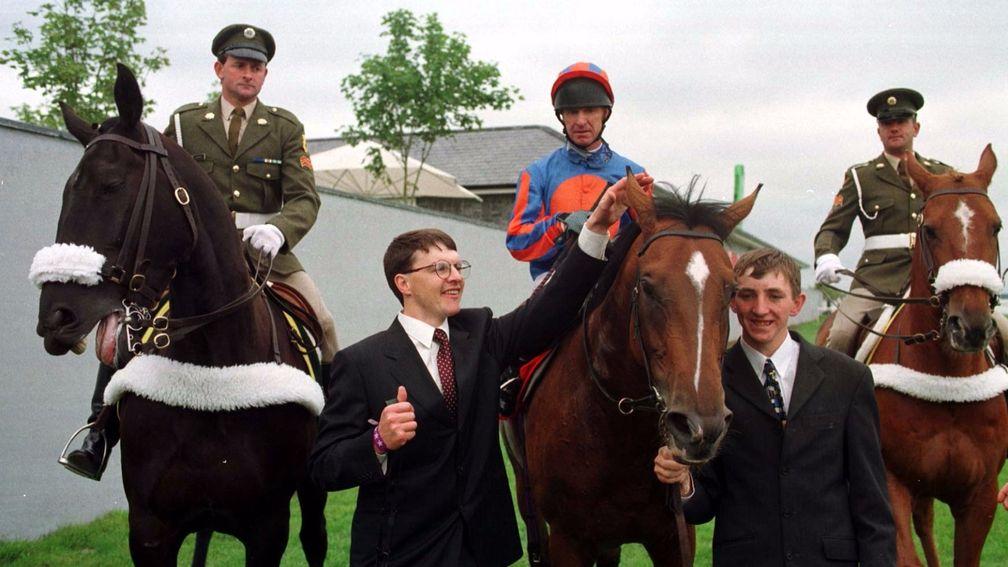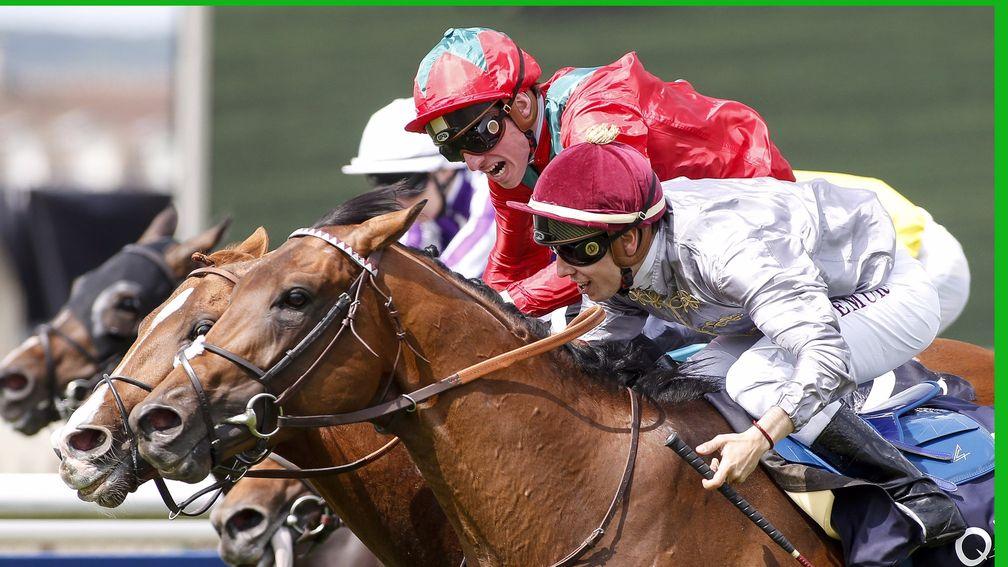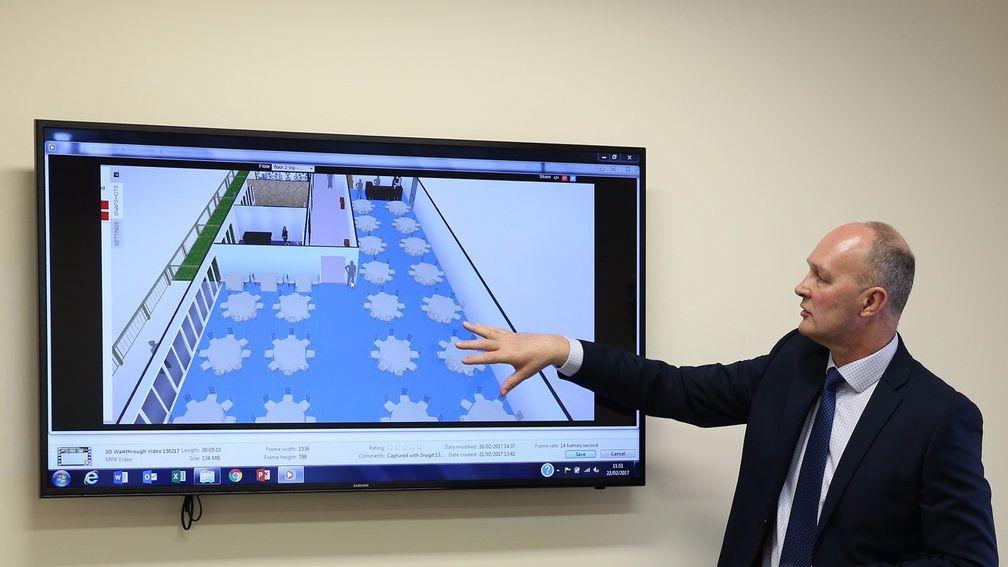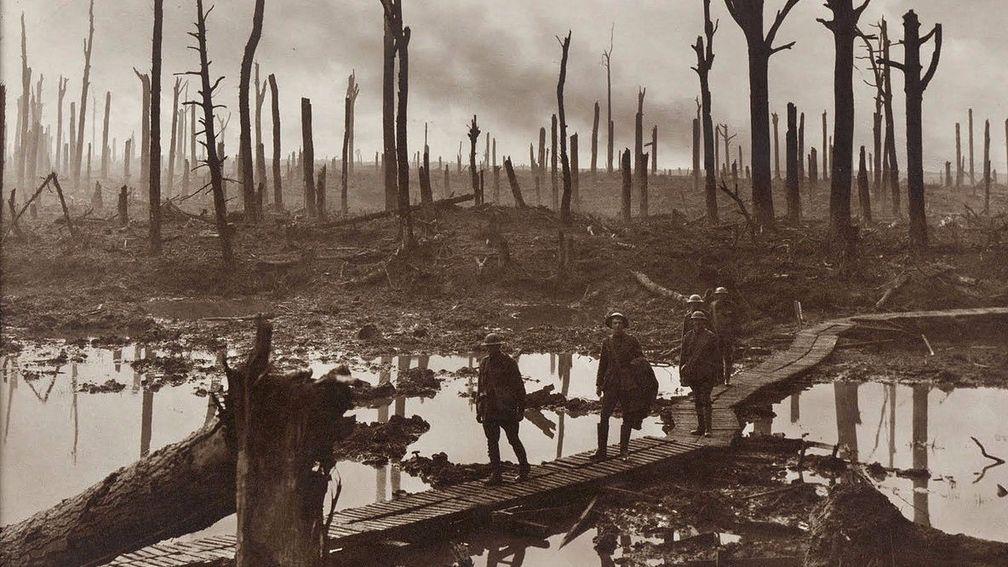French challenge adds welcome spice to flavour of Irish Derby

Tuesday's Racing Post carried an article of mine that revisited the 1997 Irish Derby, an occasion notable for bringing the first of 11 wins in the race – so far – for Aidan O'Brien.
It is easy, in retrospect, to see this as a pivotal event in the history of the race. There is also a sense in which O'Brien's arrival on the scene provides an example of 'the law of unforeseen consequence'.
In the second half of the 1980s and through much of the 1990s, a general complaint among Irish racing fans was the inability of our trainers to mount a successful defence of the country's most prestigious race.
Between Vincent O'Brien's final victory in the event with Law Society in 1985 and Aidan O'Brien's breakthrough triumph with Desert King in 1997, only two Irish trainers, Jim Bolger, with the Epsom runner-up St Jovite in 1992, and Dermot Weld, with the unconsidered Zagreb in 1996, joined the roll of honour.
The subsequent history of the race has been startlingly different. Apart from three French-trained victors, two of them in the years immediately after Desert King, and a sole British-trained winner in 2015, the race has been comprehensively dominated by Irish-trained horses for two decades now.
And here is where 'unforeseen consequence' kicked in. Seven wins in a row for O'Brien – between 2006 and 2012 – changed the profile of the race in international terms. For all the brilliance of the feat it became too much like routine, almost run-of-the-mill.
The race began to lose an identity carefully crafted and nurtured over the years, ideally providing a showdown between the winner of the Derby and the Prix du Jockey Club, or at least featuring some form of strong representation from Britain and France, enlivened by the potential for a local success.
That was the narrative that informed the 1997 edition, in which Silver Patriarch, beaten a short-head by Benny The Dip at Epsom, and fifth-placed The Fly, represented the Derby form, while French 2,000 Guineas runner-up Loup Sauvage was a credible French challenger.
As well as the O'Brien-factor acting as a deterrent to the ambitions of trainers from abroad in the years of monopoly between Dylan Thomas in 2006 and Camelot in 2012, the change in distance of the Prix du Jockey Club was a specific factor in the diminution of interest from France.
It is in that context that Saturday's scheduled challenge by the Andre Fabre-trained Waldgeist is one of the better things to have happened to the race in recent years.

Ballydoyle's stranglehold has been broken in the last four years, with Trading Leather (2013) giving Bolger a second win in the race, Jack Hobbs (2015) becoming the first winner trained in Britain after a 21-year hiatus, and Harzand, last season, providing Weld with a third success.
A runner for Fabre, successful with Winged Love in 1995 and Hurricane Run ten years later, is always a fascinating ingredient in any European Group 1 race.
Waldgeist, a son of Galileo, had four Ballydoyle-trained juveniles – Capri, Douglas Macarthur, Taj Mahal and Wings Of Eagles – behind when winning last season's Criterium de Saint-Cloud, and bounced back from an odds-on defeat in the PrixGreffulhe to finish a short-head second to Brametot in the Prixdu Jockey Club.
His dam, Waldlerche, is a stoutly bred Monsun mare who won over a mile at two and captured a middle-distance Group 3 event at three.
Waldlerche is a half-sister to 2011 St Leger winner Masked Marvel, and Waldgeist has a more obvious 1m4f pedigree than John Gosden's runner Cracksman, the Derby third.
That said, it was inexperience rather than any outright lack of staying power that was possibly the main factor in Cracksman's defeat at Epsom, and the form of his Investec Derby Trial win was given a shot in the arm when Permian gave a tough performance to beat Gosden's Khalidi in last week's King Edward VII Stakes.
Fabre and Gosden supply meaningful opposition to the Ballydoyle squad. That can only be good for the profile of the race.
Not in racing public's interest
Those in charge at the Curragh insist nothing will alter the decision to run next year's Irish Derby meeting and the second leg of the Irish Champions Weekend in the makeshift surroundings necessitated by redevelopment work.
The resulting attendance ceiling of 6,000 includes everyone on site, and therefore excludes all bar a token number of those who would normally converge on the Curragh for the Irish Derby, which has remained a consistently high-profile occasion – a heady combination of the sporting and the social – in the 55 years since the advent of the Sweeps sponsorship in 1962.
Actually, we already knew this was in effect set in stone, and it has been suggested by usually well-informed sources that there are contractual obligations at the heart of the matter.
However, now we are told, in the quoted remarks of the track's chief executive Derek McGrath, that "a very in-depth review was carried out at board level". He went on to say: "the board felt from the business point of view, and from the point of view of the Curragh, and everyone interested, that it was the best decision."

How does it make sense from a business point of view, or from the perspective of "everyone interested" to exclude the overwhelming majority of customers from attending two of the biggest days in the Irish calendar?
And how does a review take place even before the actual staging of the event? Of course, the review has looked at fixtures that have already taken place this season, heavily criticised by many attendees, although grudgingly supported by most racing professionals.
Simply for the sake of public relations, it would have been politic to see how the Derby experience works out for the privileged few who have made the cut. But, once again, the message is that punters and the average racegoer come low on the priority list.
As in so many areas of the industry, those at the top simply do not seem to get it. Once you take public money, as is the case with the Curragh project, you ought to take on certain responsibilities.
SIDEWAYS GLANCE
The late Tony Sweeney, journalist, racing historian and form expert, was often a passenger in my father's car on our trips to the Curragh in years gone by. His fund of stories always made the journey pleasurable.
In this week, when we touch on the subject of Derby attendance, I recall his tale of the Irish Derby-winning trainer who was an absentee on the day in question
This was George Todd, one of the great masters of Manton, the fabled Wiltshire estate where he followed in the footsteps of the Taylors, Alec and 'Young Alec', and Joe Lawson.
Todd, legendary for his long-in-the-making handicap plots, reputedly paid the balance on his purchase of Manton in cash thanks to the victory of Dramatic in the 1950 Lincoln.

In 1966 he sent his Derby fourth Sodium to take on the Epsom winner Charlottown in a rematch in the Irish Sweeps Derby. Given a daring ride up the inside by Frankie Durr, Sodium won by a length from Charlottown, brought wide by ScobieBreasley, anxious to avoid trouble in the 23-runner field.
Members of the Irish press interviewed the owner, Bombay chemical manufacturer Radha Sigtia. They looked around for Todd, only to be told he was not present.
One of the party volunteered to telephone Manton. Todd's wife Audrey answered. She explained how George was out walking the dogs on the Downs and would be back in an hour or so. She would tell him the good news from Ireland.
Lord Howard de Walden, who kept horses with Todd, quoted the trainer's stated preference for staying at home.
"I never travel. I went abroad once, to a place called Passchendaele [the battle fought on the Western Front in 1917]. I didn't like it and I've been never been away again."
Published on 27 June 2017inComment
Last updated 20:20, 3 July 2017
- The whole shape of the Irish Flat season is being defined by one man only - and even his main targets lie elsewhere
- Analysis: Flutter and 888 have enjoyed contrasting fortunes but they still have things in common
- Only a baby step but an important one if racing is to keep some of its David v Goliath moments
- There are so many great betting opportunities on Saturday - here are my best bets including a very strong Curragh fancy
- Coolmore and Godolphin spare the sport some embarrassment - and not for the first time
- The whole shape of the Irish Flat season is being defined by one man only - and even his main targets lie elsewhere
- Analysis: Flutter and 888 have enjoyed contrasting fortunes but they still have things in common
- Only a baby step but an important one if racing is to keep some of its David v Goliath moments
- There are so many great betting opportunities on Saturday - here are my best bets including a very strong Curragh fancy
- Coolmore and Godolphin spare the sport some embarrassment - and not for the first time